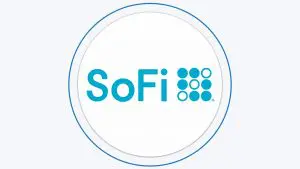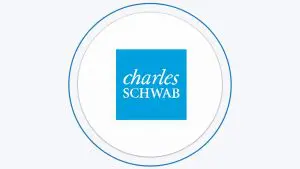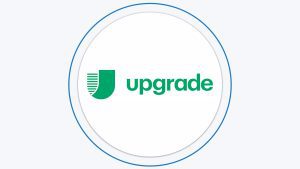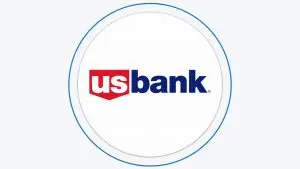Table Of Content
Potential account holders often wonder how much money is required to initiate this process. The answer to this question varies depending on several factors, such as the type of account and financial institution.
In this article, we will explore the minimum deposit requirements for different types of bank accounts, shed light on associated fees, and discuss strategies for selecting the right account that aligns with your financial goals.
How Much Money Do You Need to Open a Bank Account?
The amount of money required to open a bank account can vary depending on the type of account and the bank you choose. In many cases, you can open a basic checking or savings account with a small initial deposit, often as low as $25 or even less. Some banks may even offer accounts with no minimum deposit requirement.
However, certain types of accounts, such as high-end premium accounts or specialized accounts, may have higher minimum deposit requirements. These can range from several hundred dollars to several thousand dollars.
Bank Accounts With No Minimum Deposit
Based on the table provided, it is evident that numerous banks offer the option to open an account without requiring a minimum deposit. While many of these banks are online-based, there are also brick-and-mortar institutions that provide this option.
However, if you're specifically seeking an account with no monthly fees, online banks such as Capital One, Ally and Upgrade offer fee-free accounts unless you meet the criteria to waive fees at banks that do charge them, such as PNC or TD Bank.
Institution | Minimum Deposit | Monthly Fee |
|---|---|---|
$50 | $0 | |
$0 | $0 | |
$0 | $0 | |
$0 | $0 | |
$0 | $0 | |
$0 | $0 | |
$0 | $7 – $25 per month
can be waived if you maintain $500+/$2,000/$5,000 direct deposit per month, $500+/$2,000/$5,000 monthly balance in savings or age 62+/$10,000 in all PNC consumer deposit accounts/$25,000 in all PNC consumer deposit accounts/
| |
$0 | $15 per month
Can be waived if you’re aged 17 to 23 or if you maintain $100 minimum daily balance
| |
$0 | $12
Can be waived if you maintain a $1,000 minimum daily balance, making direct deposits or Associated SnapDeposits of $500 or more per statement cycle, or holding $2,500 in combined deposit accounts with the same statement cycle date or having a Health Savings Account or investment account
|
Bank Accounts With Minimum Opening Deposit
Traditional banks like Bank of America, Wells Fargo, and U.S. Bank typically have minimum deposit requirements. However, as previously mentioned, these requirements are generally quite low, ranging from $25 to $100.
Institution | Minimum Deposit | Monthly Fee |
|---|---|---|
$50 | $0 | |
$25 | $6.95
Can be waived by maintaining an average account balance of $1,500, have $1,000+ in direct deposits per month or be aged 65+
| |
$25 | $10
Related to Wells Fargo Everyday Checking. The fee can be waived if you maintain a minimum daily balance of $500 or receive at least $500 in qualifying direct deposits per month. The fee is also waived if you’re 17 to 24 and have a linked Wells Fargo Campus Debit Card or Campus ATM card linked to the checking account
| |
$25 | $10
Can be waived if you have monthly direct deposits of at least $500 or you maintain a daily balance of at least $500
| |
$100
| $0 | |
$100 | $25
Can be waived if you have a combined balance of at least $10,000 across your linked, eligible accounts or if you are enrolled in the Preferred Rewards scheme
|
Bank Accounts With High Minimum Opening Deposit
Some premium bank accounts offer a very high minimum to open an account. Premium bank accounts often offer exclusive features and benefits designed to cater to high-net-worth individuals.
These features may include personalized financial advice and dedicated relationship managers, priority customer service, access to exclusive banking lounges or branches, higher withdrawal and transaction limits, premium credit card offers and more.
Institution | Minimum Deposit | Monthly Fee |
|---|---|---|
$150,000 | $35 | |
$1,000,000 | $0 | |
$200,000 | $0 |
Why Online Banks And Credit Union Offer Lower Minimum?
Online banks and credit unions operate primarily through online platforms, which eliminates the need for physical branches and reduces overhead costs associated with maintaining a physical presence. With lower operating expenses, these institutions can afford to offer lower minimum deposit requirements.
Also, Online banks and credit unions aim to attract a wide range of customers, including those who may not have significant savings or those who prefer low-cost banking options. By offering lower minimum deposit requirements, they can appeal to individuals who are looking for accessible and affordable banking solutions.
Sign Up for
Our Newsletter
Minimum Deposit vs Minimum Balance
The terms “minimum deposit” and “minimum balance” are related to banking requirements but refer to different aspects of an account. The minimum deposit serves as a prerequisite for opening an account, while the minimum balance determines the benefits and potential fee waivers. If your account balance drops below the specified minimum, the bank may impose maintenance fees or penalties.
Minimum Deposit: This refers to the initial amount of money you need to deposit when opening a new bank account. It is the minimum amount required to activate the account and start using its services.
Minimum Balance: This refers to the minimum amount of money you must maintain in your bank account on an ongoing basis. It is the lowest balance that must be present in the account to avoid certain fees or to keep the account in good standing.
Certain accounts may feature tiered minimum balance requirements, offering extra advantages or perks for maintaining a higher balance.
What Else Should I Consider?
Besides minimum balance and fees, there are several other factors you should take into consideration:
Account Features: Different types of bank accounts offer different features. Consider the features that are important to you, such as online banking, mobile banking apps, bill payment options, check-writing capabilities, or debit card availability. Choose an account that provides the features you need for convenient banking.
Accessibility: Evaluate the bank's accessibility and convenience factors. Consider the availability and proximity of branches and ATMs, as well as the bank's online and mobile banking capabilities. If you travel frequently, consider a bank with a wide ATM network or partnerships that provide fee-free access to ATMs.
Customer Service: Good customer service is crucial when dealing with any financial institution. Research customer reviews and ratings to get an idea of the bank's reputation for customer service and responsiveness to customer needs.
Product Variation: Consider any additional services offered by the bank, such as investment accounts, credit cards, loans, or financial planning services. Having these services available in one place can be convenient if you plan to use them.
- Interest Rates: some checking account offer interest rates on balance.
FAQs
Can I open a bank account with no minimum deposit?
Yes, some banks offer accounts with no minimum deposit requirement. These accounts are designed to be accessible to a wide range of customers.
What happens if my account balance falls below the minimum balance requirement?
If your account balance falls below the minimum balance requirement, the bank usually charges a maintenance fee (if it's not a no-monthly fee account).
Do all types of bank accounts have a minimum balance requirement?
No, not all bank accounts have a minimum balance requirement. Basic checking or savings accounts may have lower or no minimum balance requirements, while premium or specialized accounts may have higher requirements.











